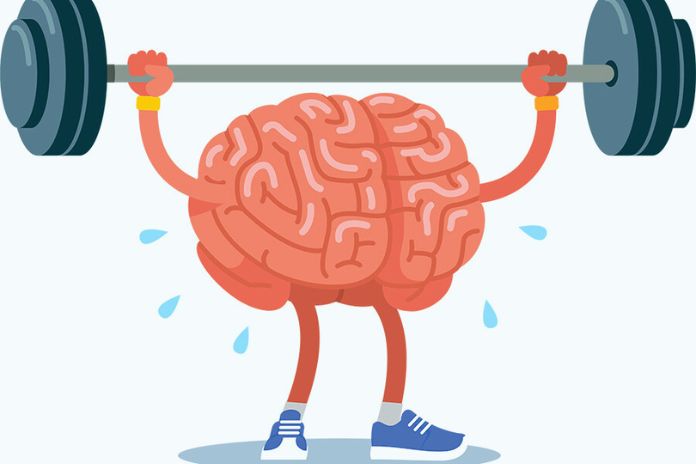When it comes to health, most people adhere to the stereotype of beauty, that is, maintaining a healthy appearance and a beautiful body. However, there are several benefits of physical exercise for mental health. As a Physical Education Professional, you should already know that physical activities can improve mood and intelligence and even form new neurons. But what other benefits of physical exercise can we relate to the mind?
Keep with me by reading this article. To begin with, it’s important to know that all these benefits are possible – it just depends on how the exercise is performed. Physical activities generate changes throughout our bodies. In the brain, it generates changes both structurally and functionally.
Our childhood is when our brain develops the most. To give you an idea, a 7-year-old child has approximately 95% of an adult’s brain. When we reach adulthood, this development stagnates, and with age gain, it can even fall. However, there are some alternatives to continue with this development, one of which is the practice of physical exercises.
To understand the benefits of physical exercise on the psyche, we need to put our nervous system on the agenda, separated into the central and peripheral nervous systems. Our nervous system is made up of specific cells called neurons.
To understand more about this, it is necessary to introduce that the generation of new neurons – called neurogenesis – is fundamental in motor coordination. It is known that physical activity generates neurogenesis in the hippocampus.
The Importance Of The Hippocampus
The hippocampus is a very important structure of our brain, which has the functions of memory and the limbic system responsible for our emotions. Seeing this, we can understand that neurogenesis in the hippocampus makes memory and our emotions the main benefits of physical exercise.
The major studies on the subject began in the 90s when scientists found positive post-exercise responses in the proliferation of hippocampus cells and a neuroprotective effect that modifies cognitive functions.
Mental health is one of the many benefits of physical exercise. It is noteworthy that mental health is also recognized as a non-pharmacological strategy to combat brain dysfunctions that arise with advancing age and to combat neurodegenerative diseases.
How Does This Happen?
Physical activities increase synaptic plasticity, such that the metabolism of neural cells and blood supply in the brain generates increased neural processing capacity. Physical exercise induces neuroprotection in several brain areas, preventing and helping treat neurodegenerative diseases such as Alzheimer’s disease, Parkinson’s disease, Huntington’s disease, and dementia.
Not least, exercise is playing an increasingly important role in preventing and treating these diseases, given its ability to increase both neurogenesis and neuron survival, bringing dual benefits to the nervous system.
One more advantage of exercise-induced neurogenesis is that the newly generated neurons have a greater capacity for synaptic plasticity; that is, they improve cognition, learning, memory, processing speed, and execution of thoughts. Exercise also induces angiogenesis – formation of new blood vessels – in the nervous system, i.e., it increases and improves blood flow and nutrition to the nervous system.
In addition to the benefits of physical exercise mentioned above, there is also an increase in blood flow in the brain, consequently increasing your oxygen consumption. With this, the growth cascade is signaling, increasing the availability and function of neurotransmitters, especially dopamine, glutamate, noradrenaline, and serotonin.
Neurotransmitters and hormones are responsible for feelings of pleasure and motivation, learning, and synaptic expansion. In this way, exercise helps our mood and determination, leaving us in a better mood. Neurogenesis in the hippocampus prevents its atrophy, and its degeneration is related to the onset of depression and anxiety.
Taking into account that oxidative stress at high levels accelerates aging, including the nervous system, the antioxidant action of exercise at moderate intensity prevents aging by playing a neuroprotective role for the entire nervous system and making exercise an important agent in the treatment and prevention of neurodegenerative diseases, since moderate physical exercise plays an antioxidant role in the body.
Brain-Derived Neurotrophic Factor – BDNF
It is also known that physical training can generate adaptations in the adrenal glands, decreasing the secretion of cortisol and corticosterone and that the elevations of corticosterone inhibit the neurogenesis of the hippocampus.
There is evidence that excess corticosterone compromises hippocampus functions. Therefore, strategies aimed at reducing cortisol and corticosterone are extremely important for mental health, and physical exercise is included in these strategies.
Another factor that proves the benefits of physical exercise on the mind is related to a protein secreted in the brain and found in the central and peripheral nervous system – Brain-derived neurotrophic factor (BDNF).
Secreted by neurons, this neurotrophic factor interacts with other cells, and this communication is extremely important for the survival of cells that secrete BDNF and their target cells. BDNF is also synthesized and secreted by skeletal muscle, having a trophic function in motor neurons.
Also Read: Mental Health: The Importance Of Taking Care Of The Mind

